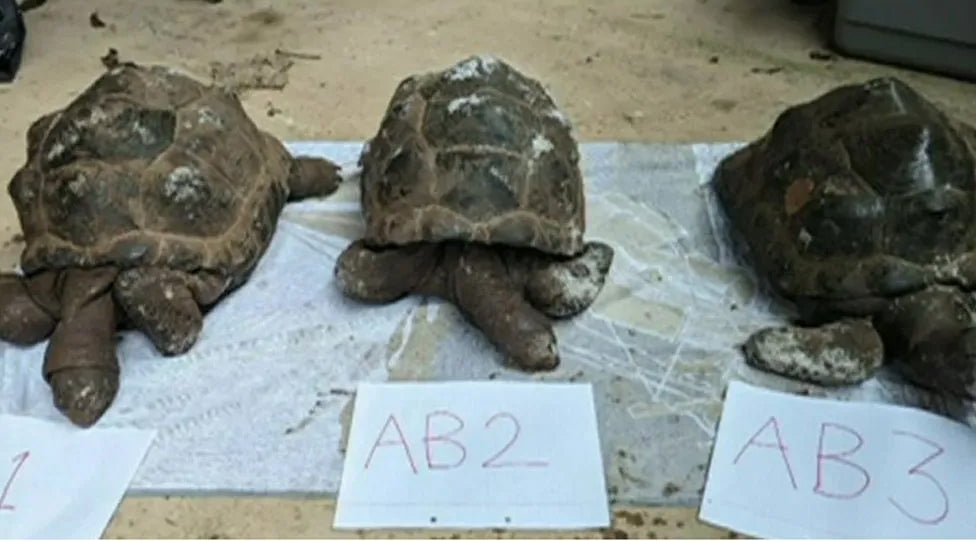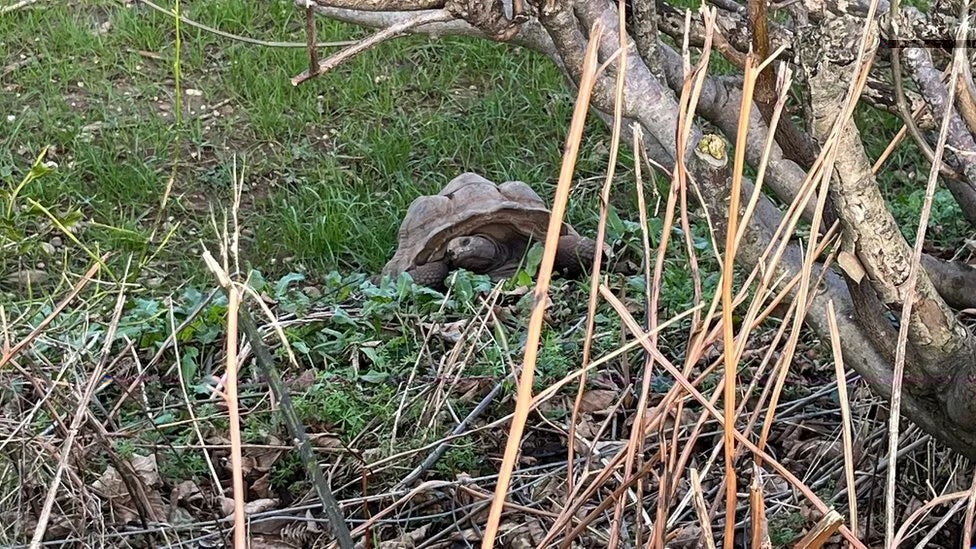Man charged over mystery of ten giant tortoises found dead in woods
Gary Priddle, 56, of Grecian Way, Exeter will face Magistrates’ Court

A man will appear in court in connection with an investigation into the discovery of several giant tortoises found dead in woodland in Devon.
Gary Priddle, 56, of Grecian Way, Exeter will face Exeter Magistrates’ Court on Thursday May 30 to answer charges brought under the Animal Welfare Act and Environmental Protection Act.
Devon and Cornwall Police said the charges related to the care and welfare of 10 Aldabra tortoises and the disposal of their bodies in the East Devon area between December 29 2023 and January 2 2024.
Aldabra giant tortoises are classed as vulnerable by the International Union for Conservation of Nature.
One charge states: “Between 29 December 2023 and 2 January 2024 at Exeter in the county of Devon threw down, dropped or otherwise deposited litter, namely ten deceased Aldabra tortoises and left it in East Devon, a place to which section 87 of the Environmental Protection Act 1990 applied. Contrary to section 87(1) and (5) of the Environmental Protection Act 1990.”

The second charge states: “Between 23 and 29 December 2023 at Exeter in the county of Devon did not take such steps as were reasonable in all the circumstances to ensure that the needs of an animal for which you were responsible, namely ten Aldabra tortoises, were met to the extent required by good practice in that due to not checking on the daily welfare and heating system relating to their care which failed and led to the animals’ death. Contrary to section 9 and 32(2) of the Animal Welfare Act 2006.”
Together with their distantly related cousin, the Galapagos giant tortoise, they are the largest species of tortoise in the world.
They can live for more than 150 years, with some having shells that reach more than a metre in length.
Bookmark popover
Removed from bookmarks